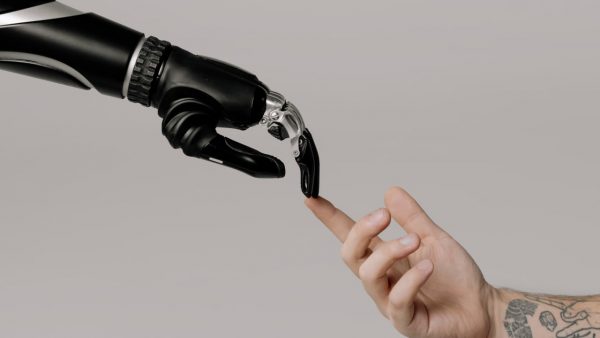Technology is advancing at an unprecedented pace, and businesses that fail to keep up risk being left behind. From artificial intelligence (AI) to blockchain, emerging technologies are transforming the way we do business. In this post, we’ll explore some of the most promising emerging technologies and their potential impact on businesses.
Artificial Intelligence (AI)
Artificial intelligence has been a buzzword for several years now, but it’s finally starting to live up to its hype. AI refers to machines that can perform tasks that typically require human intelligence, such as visual perception, speech recognition, decision-making, and language translation.
One of the most significant benefits of AI is its ability to automate repetitive tasks, freeing up employees’ time for more strategic work. For example, chatbots are already being used by many companies to handle customer service inquiries quickly and efficiently.
Predictive analytics is another area where AI is making a big impact. By analyzing vast amounts of data from multiple sources, AI algorithms can identify patterns and predict outcomes with remarkable accuracy.
Looking ahead, we can expect AI to play an even more critical role in business operations. Personalized marketing is one area where AI can make a significant difference. By analyzing customer data and behavior patterns, companies can tailor their marketing messages to individual customers’ preferences and needs.
Fraud detection is another area where AI could be useful; by analyzing transactions in real-time for suspicious activity or anomalies beyond human capabilities.
Virtual Reality (VR) and Augmented Reality (AR)
Virtual reality involves creating an immersive computer-generated environment that users can interact with using specialized equipment such as headsets or gloves. Augmented reality overlays digital information in the real world through devices such as smartphones or smart glasses.
One industry that’s already making use of VR technology is retail. Brands like IKEA have created virtual showrooms where customers can “walk” around and see furniture in different settings without leaving their homes. VR technology also has enormous potential in employee training; simulations provide a safe environment for employees to practice skills without any real-world consequences.
As for augmented reality (AR), it’s already being used by companies like Snapchat and Instagram to create fun filters for users to play with on social media platforms. However, AR also has exciting potential applications in areas like product visualization; imagine being able to see how furniture would look in your home before buying it!
Going forward, we’re likely to see more uses of VR and AR in business settings; virtual conferences could become commonplace as people around the world connect without ever leaving their homes.
Blockchain
Blockchain technology is often associated with cryptocurrencies like Bitcoin, but it has many other potential applications too! At its core, blockchain involves creating a decentralized database where records cannot be altered once they’ve been added.
One industry where blockchain technology has already made waves is supply chain management; Walmart uses blockchain technology to track food products from farm-to-store shelves ensuring traceability across all stages of production while preventing fraud or contamination issues along the way.
Another area where blockchain could make a huge impact is digital identity verification; instead of relying on centralized databases vulnerable to hacking attacks or manipulation by corrupt insiders – blockchains offer secure record keeping that’s tamper-proof while allowing individuals full control over their personal information-sharing practices, this creates trust between parties who may not otherwise know each other well enough yet still need assurance about each other’s identities before transacting online safely & securely.
In conclusion: Blockchain will revolutionize how transactions are conducted online, reducing fraud risks dramatically while increasing transparency levels significantly compared to current methods employed today which rely heavily upon intermediaries who charge fees every step along the way plus introduce friction points into processes slowing things down unnecessarily too much sometimes!
Internet of Things (IoT)
The internet of things refers to physical objects connected via the internet that collect data from sensors embedded within them which transmit data over wireless networks back and forth between devices enabling remote monitoring & control capabilities automatically.
The IoT offers tremendous opportunities for businesses looking into improving efficiency levels within logistics operations or optimizing production processes further- think smart factories powered by IoT sensors detecting equipment malfunctions before they occur preventing costly downtime scenarios altogether!
The IoT also enables improved customer service experiences thanks largely due primarily because responses can be automated based upon pre-determined rulesets programmed beforehand – minimizing delays while providing personalized assistance when needed most urgently during peak traffic periods.
Looking ahead: The IoT will continue growing rapidly as more devices come online every day- encouraging businesses everywhere to adopt new strategies utilizing these tools effectively so they remain competitive long-term against rivals who may have more advanced systems at their disposal already today!
Conclusion:
Emerging technologies have enormous potential for transforming business operations across various industries worldwide! Companies willing to embrace these advancements early on stand a better chance of competing successfully long-term than those lagging behind waiting too late and investing resources into upgrading legacy systems no longer capable of supporting the latest market trends anymore effectively enough anymore necessary staying competitive nowadays.
